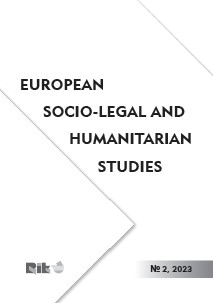“US-THEM” OPPOSITION IN THE TEXTS OF POLITICAL INTERVIEWS
“US-THEM” OPPOSITION IN THE TEXTS OF POLITICAL INTERVIEWS
Author(s): Yuliia UmantsevaSubject(s): Media studies, Syntax, Semantics, Politics and communication
Published by: Editura U. T. Press
Keywords: political communication; opposition, the category of “us-them”; syntactic pattern; non-canonical opposition;
Summary/Abstract: The article considers syntactic models of oppositions which are a means of implementing the binary category of “US-THEM” in the texts of political communication. On the basis of interview research, a typology of syntactic patterns that can function as systemic oppositions as well as non-canonical contrastive pairs determined by a certain context is proposed. The opposition «US-THEM» is one of the fundamental contradictions of every social culture. The worldview of each community and everyone is based primarily on perceptions of their territory, homeland, family, national boundaries, belonging to specific groups based on gender, age, class, life interests, political views, and perceptions of a collective community united by traditions and customs, accepted behavioral stereotypes, values, and moral norms. Individuals tend to sense any deviation from the accepted norms and rules of their group and notice differences in the outward characteristics and behavioral patterns of another unfamiliar group or individual. The concept of «US-THEM» is widely studied in political discourse, where power struggles among opposing parties are prevalent. This opposition permeates culture and shapes collective worldviews at different levels, from mass to national scales. A popular leitmotif is the study of political discourse in terms of its construction of groups of opposing subjects. The US-THEM category offers significant analytical flexibility. The main goal of political discourse is a power struggle that is actively contested by multiple parties, and the key to this discourse is the «US-them» opposition. The opposition of «America» and «them» permeates all cultures in various forms and is one of the main concepts of the collectively popular national worldview of any mass. At a functional level, the «US-THEM» category in media texts can be broken down into three components: orientation (formulating and clarifying political positions), integration (seeking and rallying supporters), and atonality (engaging in conflict with enemies). This functionality aligns with other fundamental semiotic oppositions present in human culture. In our analysis, examples of opposition structures are extracted from Fareed Zakaria’s interview with former US President Bill Clinton and examined according to Stephen Jones’ typology, to determine their functions in political communication texts.
Journal: European Socio-Legal and Humanitarian Studies
- Issue Year: 2023
- Issue No: 2
- Page Range: 79-83
- Page Count: 5
- Language: English

